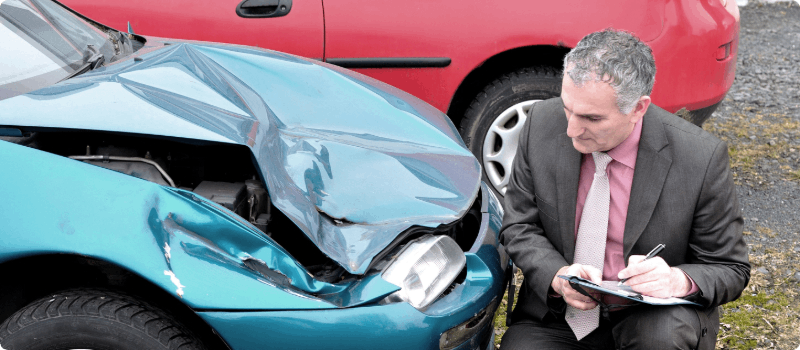Do you need insurance to test drive a car?
Updated February 15, 2024 . AmFam Team
So, you’re headed to the car dealership to find a new set of wheels — how exciting! You’ve done your research and have a few cars in mind, but you want to make sure your new ride has a good fit and feel, which means getting behind the wheel for a quick test drive.
Before you jump into the driver’s seat of that flashy four-wheeled whip, make sure you’re covering your bases: do you need insurance to test drive a car, or does the dealership have you covered? Let’s find out.

Test driving a car at the dealership
If you’re at the dealership looking to test drive some cars, you’ll want to ensure you’re covered by insurance if anything unexpected were to happen on the road. Here’s what you need to know:

What if I don’t have car insurance?
The dealership is required by law to insure their cars, which means they should have a blanket policy that pays for damage if a customer is driving the vehicle. So, whether you personally have car insurance or not, the dealer’s insurance should be considered the primary coverage in the event you need to file a claim.

What if I have my own car insurance?
Same answer as above — if you’re test-driving a car, it’s typically the dealership’s responsibility to cover any damages. However, having your own car insurance is always a good idea because there are some instances a dealership could hold you liable (you’ll find out more about that below).
A good rule of thumb to follow is that the insurance policy usually stays with the car. So, for most states, your personal auto insurance covers your vehicle, and a dealership’s car is covered by their insurance policy — meaning if you get into an accident while test-driving a car at the dealership, it’ll most likely be covered by their insurance.

Can the dealer hold me liable for damages?
All of that being said, while you may be covered under a dealership’s insurance, it doesn’t mean you’ll always get off the hook. Depending on the cause of the accident (reckless driving, for example) the dealer might hold you liable for damages. While the dealership may initially pay to repair the car, they could subrogate and try to collect from you or your insurer if you caused an accident during the test drive.

What if I sign a waiver?
There are some dealerships who will ask that you sign a “loaner/demo” agreement before handing over the keys for a test drive. This usually happens when you drive for an extended time or if the salesperson isn’t present on the test drive. Signing the waiver means you’re accepting liability for damages you may cause to the vehicle during the test drive.
Of course, be sure to check with your agent to verify that your personal car insurance policy will cover you in instances like this.

What if I’m test-driving a car for sale by a private party?
Though cars that are sold on the private market are typically covered by standard personal auto insurance, the best thing to do to protect yourself is to ask them to call their agent and ensure you’re covered to drive the car.
You could also ask the owner of the vehicle to sign a statement that gives you permission to drive the car and stating the car is insured. It never hurts to be extra careful in instances like these.
Keep in mind, if you’re planning on test-driving a car, insurance coverage may be different for each dealership or private party selling the vehicle. Always make sure to discuss with the salesman if you’re covered by their insurance if you were to get into an accident. You can also check with your insurance agent if you’re unsure or have any questions.

What do I need to test-drive a car?
Requirements to test drive a car may vary by dealership and state, but typically, you’ll just need to have a valid driver’s license on hand to take it for a spin.
Our advice to avoid any insurance issues? Be mindful that you’re handling the vehicle with extra care and caution. Familiarize yourself with the vehicle before shifting into gear, set your mirrors to your liking, make sure your feet reach the pedals comfortably, give other cars plenty of space, and, as fun as it is to crank the music, don’t mess with the radio this time around.
Planning on bringing a car home for good? Here’s a helpful list of what to bring when buying a car — it’s everything you need to make the car buying process smoother.
Searching for a car is a process that shouldn’t be rushed. Ensure you get out on the road and properly test drive a handful of options. You can also head into the dealership fully prepared with our six tips to make car buying better.
After you’ve signed the dotted lines and the keys are yours, connect with an American Family Insurance agent to check out our auto coverages to make sure your new ride never goes unprotected.
This article is for informational purposes only and based on information that is widely available. This is not part of your policy, and is not a promise or guarantee of insurance coverage. This information does not, and is not intended to, constitute legal or financial advice. You should contact a professional for advice specific to your situation.

